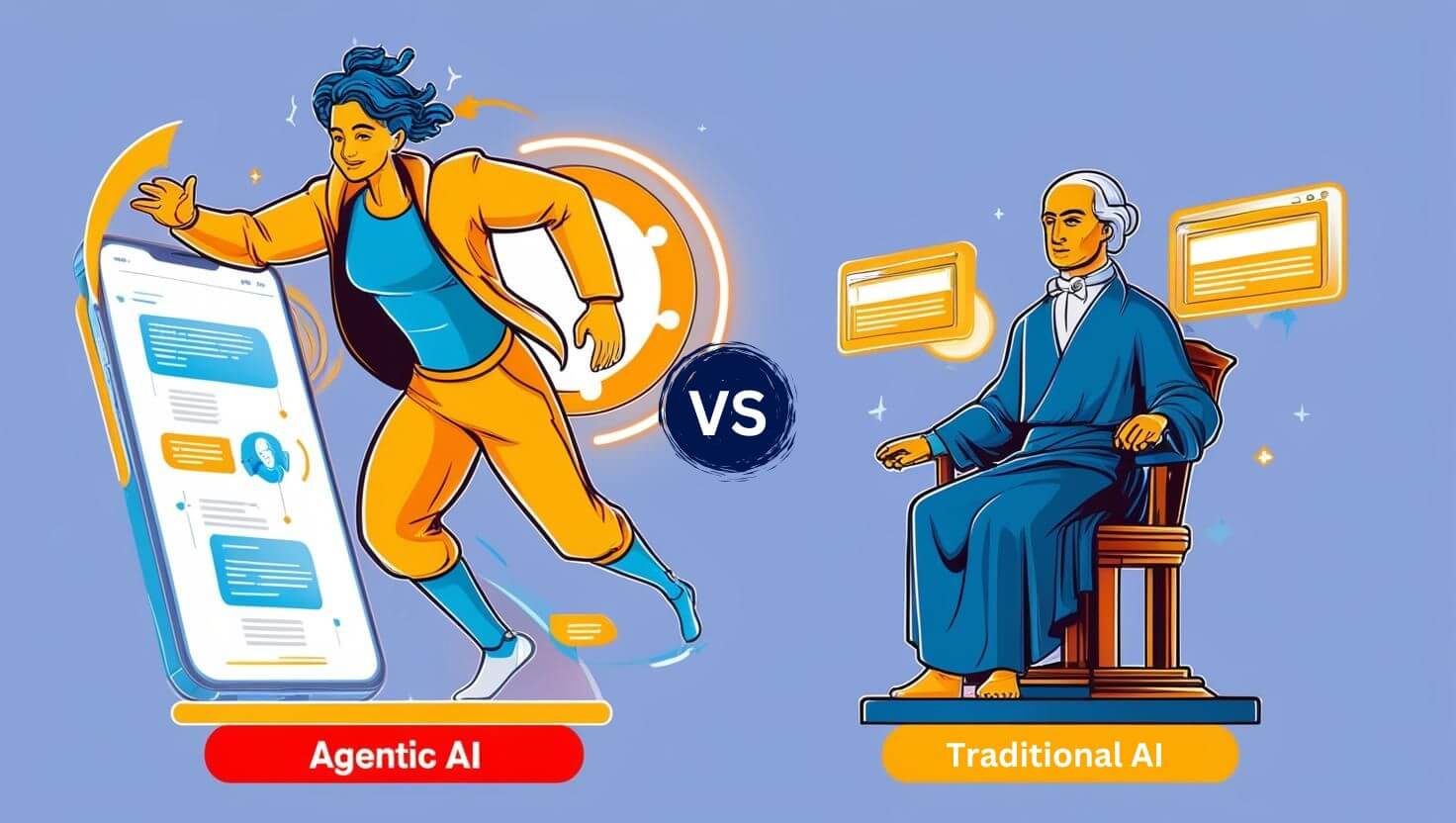Hiring is moving faster than ever, and talent teams need smarter, more efficient ways to stay ahead. That's why 50% of companies are looking to implement AI agents for sourcing and recruiting top talent. But not all AI is built the same. Traditional AI tools have helped automate parts of the hiring process, but they still rely heavily on human oversight. Enter agentic AI—a next-generation approach that's shifting how companies think about hiring.
So, what sets agentic AI apart, and why are businesses making the switch? Let's explore.
What defines an AI as agentic?
Agentic AI is characterized by its semi-autonomous capabilities, which allow it to perform tasks with minimal human intervention. Unlike traditional AI, which often requires explicit instructions for each task, agentic AI can handle multi-step processes and make decisions based on its understanding of the overall goal. Furthermore, agentic AI is inherently collaborative, working alongside human recruiters to enhance their capabilities and streamline workflows. This collaborative nature makes agentic AI a powerful tool in the recruitment landscape, as it can not only automate repetitive tasks but also provide valuable insights and recommendations.
Is agentic AI our new reality or a future dream?
If agentic AI still feels like a concept of the future, think again. By 2028, an estimated 33% of enterprise applications will incorporate agentic AI—up from less than one percent in 2024. And by 2027, half of businesses using generative AI are expected to be running agentic AI pilot programs.
These numbers make one thing clear: this shift is happening now. Companies that adopt agentic AI early will gain a competitive edge in efficiency, automation, and decision-making—especially when it comes to recruiting.
How is agentic AI for recruiting different from traditional AI?
Several key differences stand out when comparing agentic AI to traditional AI in recruiting. Traditional AI assistants are typically designed to handle single tasks, such as screening resumes or scheduling interviews. In contrast, agentic AI can manage multi-step processes, making it more versatile and efficient. Unlike chatbots, which are limited to predefined responses, agentic AI can engage in more meaningful interactions and adapt its behavior based on the context. While AI co-pilots offer support, they usually require continuous human oversight, whereas agentic AI operates with a higher degree of autonomy.
Furthermore, while agentic AI is presented in the form of an agent, it's distinct from the previous generations of AI agents. Traditional AI agents are task-oriented. They can set reminders, answer questions, or coordinate interview times, but they operate within predefined limits. These systems follow simple, rule-based logic and require explicit user input to function. Agentic AI, on the other hand, doesn't just execute commands—it actively interprets goals, autonomously determines the best course of action, and adapts based on new information. Instead of merely responding to requests, agentic AI can integrate multiple functions, learn from past interactions, and provide strategic insights.
Why hireEZ is moving towards agentic AI in recruiting
The talent landscape is more competitive than ever, and companies need smarter, faster ways to attract top talent. Traditional AI tools have helped automate aspects of recruiting, but they lack the flexibility and decision-making power that modern hiring teams need. That's where agentic AI comes in.
With agentic AI, companies can:
- Automate complex workflows: From sourcing to screening to scheduling, agentic AI can manage the entire hiring funnel.
- Enhance candidate engagement: Personalized interactions keep candidates informed and improve the overall experience.
- Optimize recruiter productivity: Free up time by reducing manual tasks, allowing recruiters to focus on high-value work.
- Make data-driven hiring decisions: Predict hiring trends, identify talent gaps, and recommend the best candidates.
Beyond efficiency, agentic AI also drives significant cost savings by reducing time-to-fill and improving hiring accuracy. Instead of recruiters spending hours sorting through applications or scheduling interviews, agentic AI handles the heavy lifting—ensuring teams stay focused on hiring the best people, faster.
What can AI recruiting agents do that traditional recruitment AI can't?
AI-powered recruiting agents bring a new level of intelligence to the hiring process. Unlike traditional AI, which operates within fixed parameters, agentic AI can:
- Source candidates autonomously across multiple platforms
- Screen resumes and assess talent fit based on past hiring success
- Conduct initial interviews and engage candidates in meaningful conversations
- Provide real-time insights and recommendations to recruiters
- Personalize candidate feedback, improving engagement and retention
The biggest advantage? Agentic AI learns and adapts over time. Instead of following the same static rules, it continuously improves its approach—leading to better hiring decisions and stronger recruitment outcomes.
So, is agentic AI the future for recruiting? We believe the answer is, undoubtedly, yes.






